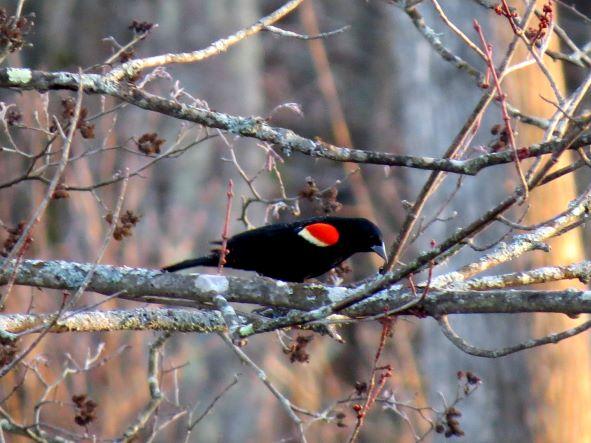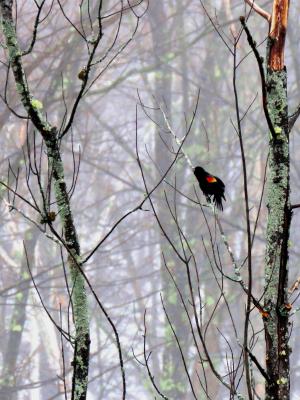Early, late or right on time?

The joy of hearing or seeing the first Red-winged Blackbirds marks transition to late winter - maybe. (Photo: Ellen Kenny)
Photographer Ellen Kenny shared the Merrimack River Floodplain news on Thursday February 16:
"Yesterday, no red-winged blackbirds. Today, voila—they are back. So good to hear that sound as I was walking down the mill brook path. I watched two males jockeying for position in an alder, showing off their epaulettes."
It is a celebratory milestone to hear the sound for the first time.

Even if has remained oddly warm for mid-February, red wing blackbirds have been arriving from the Seacoast and moving inland to the Merrimack River Valley with reports of Red-wings coming from Newmarket and Durham to Exeter over the past week.
As one reliable harbinger of late winter, typically red wings arrive during the last week of February or first week of March each year in coastal and southern NH - give or take a few weeks each year.
In response to longer daylight, the males arrive first to claim and begin to defend the very best nesting territories, flashing their bright red and yellow wing epaulette patches and sparring with other rival males in vocal contests of their repeated song often rendered as "Conka-reeee!" Even if wetlands are frozen in ice and retain snow cover, the drive to arrive seems undiminished.
Winter weather may turn cold and snowy, but once the Red-winged Blackbirds return, the milestone marks the transition from mid-season to late season... similar to the first runs of maple sap at the opening of the maple sugaring season and nearly as sweet to the ear as maple syrup on the tongue.
